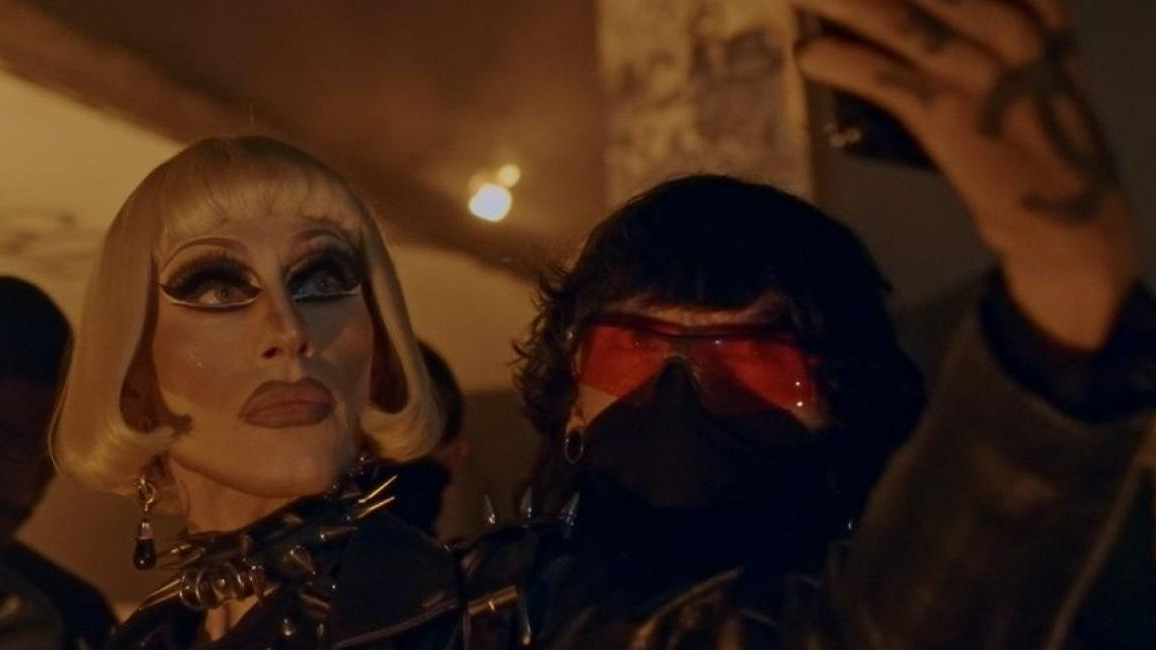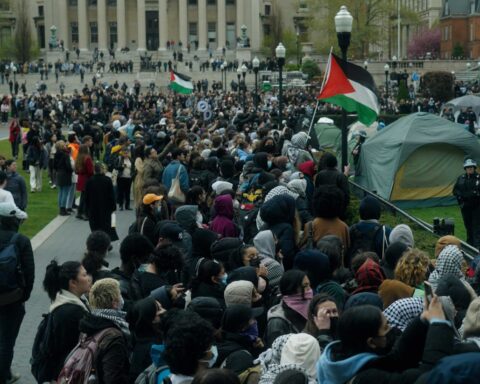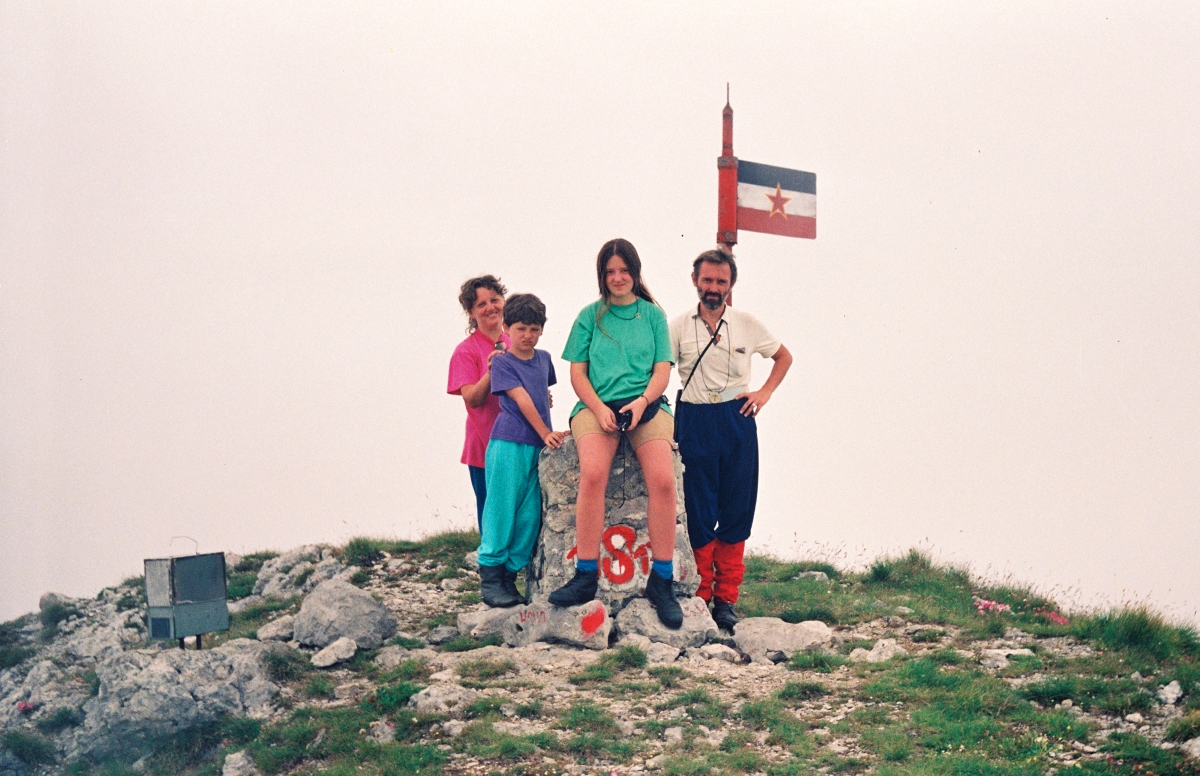Anhell69
(Colombia/Romania/France/Germany, 72 min.)
Dir. Theo Montoya
Colombian filmmaker Theo Montoya opens his latest doc, Anhell69, with an extreme juxtaposition. There is grainy video footage of politicians signing the landmark peace agreement in 2016, which meant years of civil violence would be put to an end. But we also see an image taken in a car, something so dark it’s unclear to understand precisely what it is. After a few moments it becomes clear it is an open casket, and we see the face of a corpse.
Thus Montoya is letting us know that despite the hopes of a better future for the youth of Colombia, many feel suffocated in a no-future generation. Parts of the film feature traditional-looking interviews done with disaffected youth, many of whom are queer, discussing their frustrations with life in Medellin, a city soaked in violence. But interspersed with the interviews are scenes from a zombie/vampire film that includes a lot of jarring blood and gore. At first, the hybrid form of this doc seems nonsensical; it certainly throws us off balance. It goes a long way to creating a sense of unease and impending doom.
By the final credits we learn that initially Montoya had set out to make a vampire movie and had begun shooting it. His lead was Camilo Najar, a friend who had appeared in an earlier documentary Montoya had made. Within a couple of weeks of starting the new film, Najar died of a drug overdose. By the time Anhell69 was done, other cast members were also dead, either of accidental overdoses or suicide.
Obviously, this gives the film an aura of devastation and loss. One gets the sense that Montoya felt driven to keep filming, even after the distinct roadblock of having a key cast member die. Anhell69 is raw, uncompromising and disturbing, the best kind of transgressive documentary filmmaking. It is simultaneously poignant, angry and full of despair, a film about the marginalized who are left behind or left out: brutal but essential viewing.













